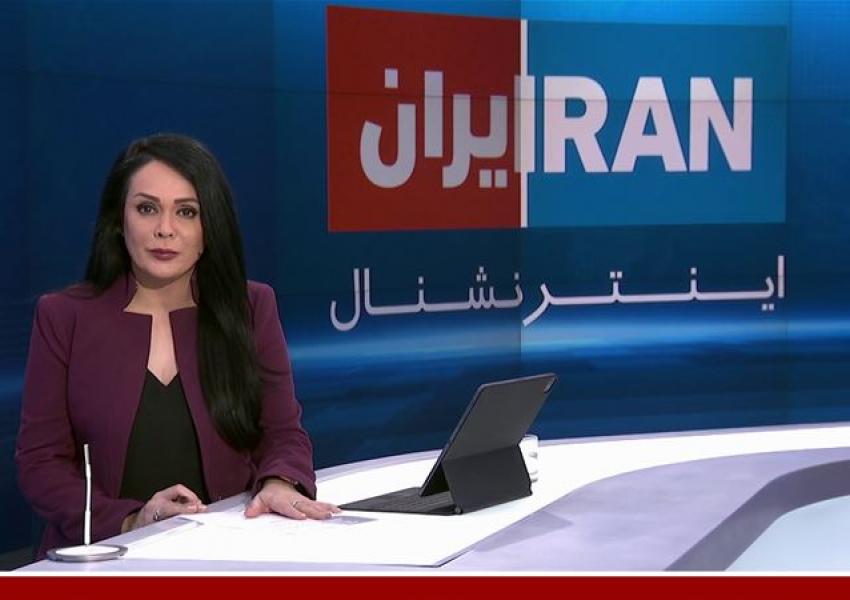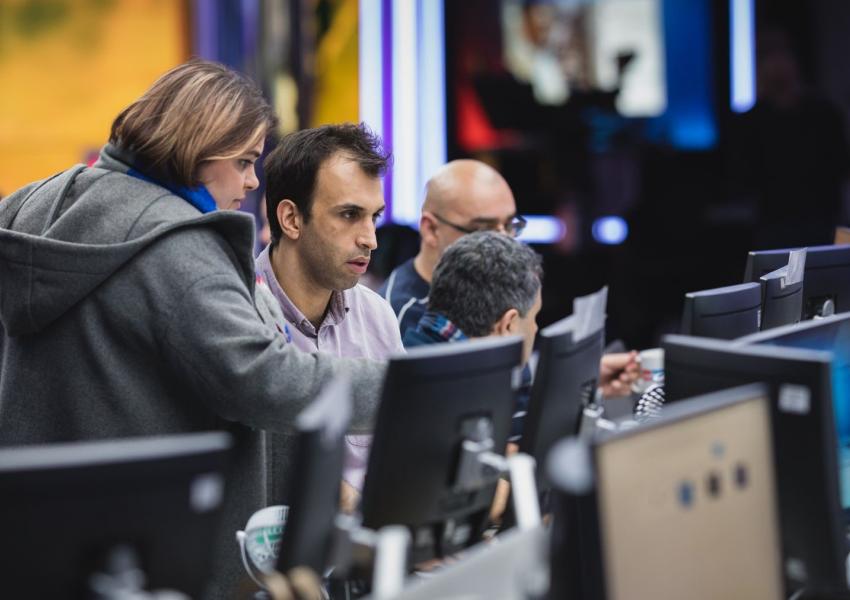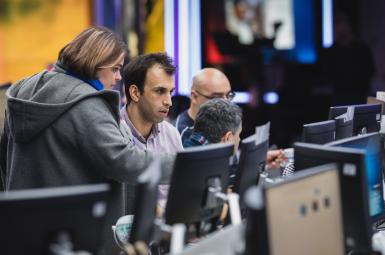
Critics In Iran Say Censorship At Home Strengthens Foreign-Based Outlets
Reformist journalist Abbas Abdi has argued that instead of more state censorship, cyberspace should be opened up in Iran, after recent remarks by Supreme Leader Ali Khamenei signaling stricter controls.
Khamenei probably meant to impose further restrictions on the already censored Internet in Iran and some Iranian officials have echoed his call for further restrictions. However, Abdi said in an interview with conservative news website Khabar Online on March 31 that Khamenei has simply expressed his concern for the increasing influence of foreign-based Iranians in social media.
Abdi suggested that the solution for this is to open up the cyberspace for Iranians so that the points of reference for news and information could emerge inside Iran.
Many critics have said that Iranian media are no longer the point of reference for Iranians seeking news and information on various matters due to the strict censorship imposed on them by the government. Iranian officials themselves have admitted that around 70 percent of adults watch Persian satellite channels beamed from abroad.
A series of events in the past three years seriously damaged the already weak credibility of Islamic Republic’s state media. Protests in 2017, 2018 and 2019, as well as the downing of the Ukrainian airliner in January 2020 further proved that state media's coverage is not reliable.
Iranian International Television and Manoto TV based in London have expanded their audiences in Iran. More than 50 percent of respondents in a recent survey said they trust the information from these two channels.
Iran International’s daily audience, according to this survey, is 33 percent, the highest among all Iranian news TV channels, including the state TV.

For instance, Iranian analyst Morad Veisi has said that the Iranian official news agency has lost its status as the main point of reference for news and information in Iran because it concealed the truth about various matters including the downing of an airliner by the IRGC in January 2020 and reflecting exclusively the views of state officials.
Etemad daily journalist Milad Alavi said in a tweet that when the government ties up the hands of domestic media, naturally the point of reference for news and information is transferred to other countries.
In October 2019, following the arrest in Iraq and abduction of Ruhollah Zam the founder of popular Telegram channel Amad News, the editor of the Rouhani administration owned daily newspaper, Iran, wrote that "After the blow dealt by the IRGC on Amad News and the fake news network, now it is time to restore the reputation of Iran-based media as the points of reference for news and information." But instead, state TV broadcast Zam's forced confessions.
Abdi further said in the interview that the officials should rid the state TV of unnecessary restrictions and forget about the idea of cutting off Iran from the global Internet network as some officials say every now and then. This is a one hundred percent failed experience, he said.
Abdi reminded: "No one can tell an Iranians abroad what to write and what not to write. But those in Iran write within the frameworks [limitations] of Iranian laws. "
Offering his policy options to the government, Abdi said: "The solution is either to cut off Iran from the global Internet, a policy which is doomed to fail as it did fail about controlling satellite television or to open up the media sphere. Today, it is almost impossible to do banking or get information about the pandemic without the Internet."
He advised: "On the contrary we should make access to the Internet easier and offer high speed connections to the people." He also said that most of talks about the National Internet is also about restricting access to the Internet. He said "those who talk about national Internet are not talking about independence. They are talking about censorship," adding that imposing restrictions on the Internet will only lead to losing social, economic and political opportunities.
Abdi further opined that "If we rid the state TV, the press and other media outlets of unnecessary restrictions, then the point of reference for Iranians seeking news and information will be moved to Iran. In that case, like other countries, gradually social media will be marginalized and will act as an element that complements the Iranian media landscape."
Elsewhere in the interview, Abdi criticized stater officials for "filtering" the social media and creating a "virtual army" to troll Internet users and leave nasty comments under their posts.
Speaking about the concern that borders on paranoia about foreigners influencing the Iranian election via social media, Abdi said that turnout in the election depends on the country's political situation rather than social media influences. "Saying that the people are under the foreigners' influence is simply an insult to the Iranian society.”




